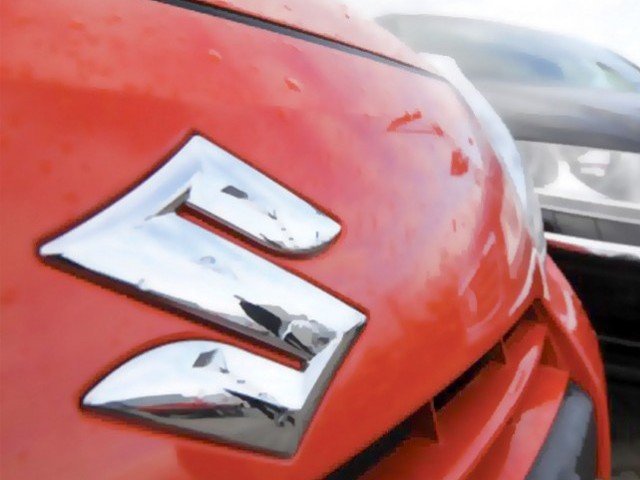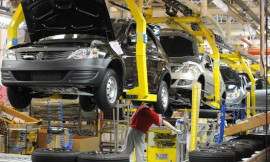
A day after the much-awaited auto policy was approved by the Economic Coordination Committee (ECC), Pak Suzuki - currently the country’s largest carmaker in terms of market share - called it a “disaster” and said it would discourage the existing players.
The ECC approved the Automotive Development Policy 2016-21 on Friday, clearing months of speculations as to what sort of incentives would be offered to new entrants in comparison to existing manufacturers.
Automotive policy: Exclusive incentives for new players blocked
“The government is requesting auto companies to come and invest in Pakistan. On the other hand, it is not giving equal incentives to the existing players who are ready to invest billions of rupees,” Pak Suzuki Spokesperson Shafiq Shaikh told The Express Tribune.
Irked by the lack of competition currently on display in the auto sector, which is dominated by Japanese brands, the government had stated clearly that it wanted to incentivise a foreign manufacturer - preferably European - to come and establish a footprint in the country.
On the other hand, Pak Suzuki, in December 2015, formally offered to invest billions of rupees as well, provided the government allowed it the same incentives offered to new entrants.
Auto industry enjoys unequaled run of success
However, the government stuck to its earlier stance, saying that it wanted to promote competition by giving incentives to new players so that they could compete with the well-grounded and well-established players.
“We offered to invest Rs4-5 billion in a new plant as well as launch new models in coming years. The government knows this very well. We are extremely dejected with the new auto policy,” said Sheikh.
When asked whether the company would still invest in the new plant after the policy announcement, Sheikh said, “We would just request the government to reconsider the policy.”
The Federal Board of Revenue (FBR) has been reportedly opposing any move to provide equal incentives to the existing carmakers at par with new entrants. “The existing carmakers have been enjoying the protection and incentives for decades,” it said.
Existing carmakers unlikely to win tax benefits
It even proposed the government to allow the import of up to five-year-old used cars compared to the current three-year upper limit, but the ECC shot down this proposal and kept the three-year-old limit for the used car imports. Moreover, the FBR is also in favour of allowing the commercial import of cars.
“The ECC’s decision to maintain the current three-year-old limit on used car imports is the only thing that is positive for the existing carmakers in the auto policy,” Shaikh said.
The new policy has allowed one-off duty-free import of plant and machinery for setting up an assembly and manufacturing facility. It has also permitted import of 100 vehicles of the same variants in the form of completely built units (CBUs) at 50% of the prevailing duty for test marketing after the ground breaking of the project.
A major incentive for the new investors is the reduced 10% customs duty on non-localised parts for five years against the prevailing 32.5%. For existing investors, the duty will be slashed by 2.5% to 30% from the new fiscal year 2016-17.
Similarly, localised parts can also be imported by the new entrants at 25% duty compared to the current 50% for five years. For existing players, the duty on import of localised parts will be brought down to 45% from the new fiscal year, beginning July.
Published in The Express Tribune, March 20th, 2016.
Like Business on Facebook, follow @TribuneBiz on Twitter to stay informed and join in the conversation.



















1714107664-0/putinfar-(1)1714107664-0-270x192.webp)











1714024018-0/ModiLara-(1)1714024018-0-270x192.webp)









COMMENTS (47)
Comments are moderated and generally will be posted if they are on-topic and not abusive.
For more information, please see our Comments FAQ